The following list of heat pump FAQ is compiled from extensive research and seeks to address the most frequently asked questions that people have on the subject. It’s a living resource that I’ll be adding to as people continue to ask questions. If you have a question that isn’t covered below, please get in touch and let me know so that I can add an answer to the list.
Table of Contents
What is a heat pump?

Heat pump is simply a piece of kit that moves heat from one place to another. Normally heat moves “down gradient”, that is to say from a warm location to a cold location. This happens in your home during the winter, when heat moves from your warm interior through the fabric of the building to the colder area outdoors. This happens through a number of mechanisms such as radiation, thermal conduction through walls and, if you have the window open, convection through said open window.
What a heat pump does is move the thermal energy up gradient (in the opposite direction to the way it would normally flow). So in the case of your house, a heat pump would transfer heat energy from outside your home to the inside.
Your refrigerator is a great example of the heat pump. In this case, it takes heat from inside the cabinet and transfers it to the radiator element on the back of the fridge. This basic principle has many applications, including heating your home and your hot water.
For more info on how heat pumps work, read this article.
Do heat pumps qualify as forms of renewable energy?

Yes. According to the European Union and the International energy agency, heat pumps are classified as forms of renewable energy generation.
What is the environmental benefit of a heat pump?
 The answer to this question depends on what type of system you are replacing and how the electricity used to power the heat pump is generated. If looking at the impact of your heating system in terms of CO2 emissions, you should know that traditional electric heating is by far the most polluting. This situation is gradually improving as recent measures have been implemented to increase the proportion of electricity that is produced from renewable means, such as wind turbines, hydro-electric power etc.
The answer to this question depends on what type of system you are replacing and how the electricity used to power the heat pump is generated. If looking at the impact of your heating system in terms of CO2 emissions, you should know that traditional electric heating is by far the most polluting. This situation is gradually improving as recent measures have been implemented to increase the proportion of electricity that is produced from renewable means, such as wind turbines, hydro-electric power etc.
In any case, the CO2 emissions from a typical heat pump with a good efficiency ratio (above 2.5) will be better than electric immersion heaters, oil and gas boilers, although the benefit might be slim. The higher the efficiency of the heat pump, the greater the CO2 benefit. Heat pumps are not usually better than wood burning and biomass systems but the picture is not a straightforward one and it is important to seek proper advice in order to fully understand the implications of whatever choice you go with for your particular circumstances.
What is the best heat pump system – air-source or ground-source?
 In the UK (especially in Scotland, where temperatures tend to be on the cold side), air-source heat pumps can struggle to provide adequate heating all year round. Whilst it may be technically feasible to install and operate an air source heat pump, you would probably find that the efficiency would be very low.
In the UK (especially in Scotland, where temperatures tend to be on the cold side), air-source heat pumps can struggle to provide adequate heating all year round. Whilst it may be technically feasible to install and operate an air source heat pump, you would probably find that the efficiency would be very low.
It is true that over recent years there have been significant improvements in air source heat pump design, which have resulted in improvements to efficiency. However, they don’t tend to last as long as a ground source installations, partly because they have to work outside and are subject to the vagaries of the weather. It’s also the case that there are many cheaper and less efficient air source units available on the market so it is always worth getting good advice before taking the plunge.
Typically, a better option would be to install a ground source heat pump system, with a decent sized trench to accommodate the pipework. This avoids the worst of the extremes of temperature that the system will experience and helps to maintain a constant heat output. That said, because air source heat pump systems tend to be much easier to fit they tend to be a cheaper option than their ground source counterparts.
Generally speaking, if the premises already have a conventional, combustion-based heating system installed, a modest air source system could be worth investigating, particularly if it served the dual purpose of air conditioning to provide cool air during the brief summer months.
Are heat pumps suitable for any kind of property?
 With careful design, heat pumps can be fitted to just about any kind of property. The main caveat associated with that however is that they need to be well insulated. Before embarking on any project to fit heat pumps to your own building, make sure that you have improved the insulation as much as you possibly can first. Very good insulation is really a pre-requisite for a heat pump and brings considerable benefits in its own right.
With careful design, heat pumps can be fitted to just about any kind of property. The main caveat associated with that however is that they need to be well insulated. Before embarking on any project to fit heat pumps to your own building, make sure that you have improved the insulation as much as you possibly can first. Very good insulation is really a pre-requisite for a heat pump and brings considerable benefits in its own right.
Can I install a heat pump in an older building?
 Yes. It is very important though to ensure that the building is properly insulated before considering installation of heat pump system. Heat pumps are most effective in very well insulated buildings and their efficiency suffers in scenarios where there are high heat losses to the surrounding environment.
Yes. It is very important though to ensure that the building is properly insulated before considering installation of heat pump system. Heat pumps are most effective in very well insulated buildings and their efficiency suffers in scenarios where there are high heat losses to the surrounding environment.
What size heat pump do I need for my house?

The optimal size of heat pump for any house depends on a number of factors. In many ways the use of the heat pump requires a change in mindset for the people occupying the house. No doubt there will be used to traditional forms of temperature control such as combustion-based boiler systems, which have been sized in such a way that they can quickly raise the temperature of the building at the whim of the occupant.
However, a heat pump system that would be capable of such rapid response times would have to be very large and would have a high installation and running cost due to the lower energy efficiency that would result from hotter radiators etc that would be necessary to respond quickly to desired changes in temperature.
If the occupants of the building properly understand how to get the best from heat pump system, it should be possible to install a very small heat pump, which could perhaps operate continuously (24-hour is a day seven days a week) during the winter months when could be a cost-effective option throughout the year. However, the response time of a very small system like this would be very slow, which might not be acceptable to the end user who is likely to want to be able to control the temperature in different rooms according to the time of day.
If your home is extremely well insulated and the temperature can be maintained at a steady level, the ability to control temperature quickly may be less of an issue and a small heat pump system may therefore be perfectly fine.
Even if quicker response times are needed, most systems these days have the possibility of a direct electric heating backup, which can make up for a small heat pump. This would obviously not be great for energy efficiency, but it would at least offer a solution when heat is required quickly. A far better solution though is to make sure that the occupants fully understand how to get the best from a heat pump system and to make sure that the building is properly insulated.
As always, the best thing to do is to seek quality professional advice. An experienced, MCS certified professional will be able to offer you good quality advice on sizing your heat pump system so that you end up with an efficient, cost-effective system that fully meets your needs as a household.
Are heat pumps well established technology, or are they still experimental?

Heat pumps themselves have been around for a very long time. As previously mentioned, your refrigerator is a heat pump.
Ground source heat pump systems are quite common in the USA and Scandinavia and have been commercially available for more than 50 years. The technology is now efficient, reliable, cost-effective and a serious option for consideration when selecting a heating system for your home or office.
How often do I need to service a heat pump?
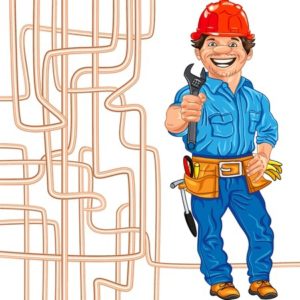 Heat pumps don’t tend to require very much in the way of servicing. As such they are fairly low maintenance. However, it is very important that they are professionally installed by people who know what they’re doing in order to get the best performance. It also makes sense to give the overall system regular check-ups by suitably qualified professionals as well.
Heat pumps don’t tend to require very much in the way of servicing. As such they are fairly low maintenance. However, it is very important that they are professionally installed by people who know what they’re doing in order to get the best performance. It also makes sense to give the overall system regular check-ups by suitably qualified professionals as well.
Can you tell me how to run a heat pump efficiently?
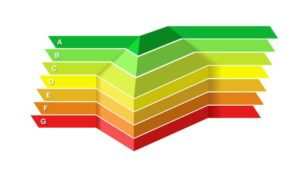 Sure! The hotter your heat source and the cooler your heat sink, the more efficient your heat pump system will be.
Sure! The hotter your heat source and the cooler your heat sink, the more efficient your heat pump system will be.
That’s the quick answer, but as always it is worth seeking professional advice in order to ensure that your system operates as efficiently as possible.
Water can be heated to around 55°C using a pump system. The exact performance depends very much on the type of pump you select. The more heat you are trying to add to your water, the less efficient your system will be, which is why low temperature applications such as underfloor heating are a very good fit for heat pumps.
To illustrate this, consider heating water to 55°C as opposed to 35°C. Example COP figures for these water temperatures would likely be approximately 2.4 and 4 respectively, which as you can see is a significant difference.
A COP of 2.4 would give you 2.4 kW for each 1 kW of electrical input. Whereas a COP of 4 would provide 4 kW of heat per kilowatt of electricity.
So, it is always better in terms of energy efficiency to go for low temperature applications.
Can I use a heat pump for radiators?
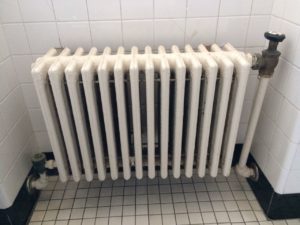 Heat pump systems are particularly suited to low temperature difference applications, which means they can struggle to operate efficiently with traditional radiators. Standard radiators have an operating temperature of around 70°C, which is actually much hotter than is achievable with heat pumps. Even if you did design a heat pump system that was capable of heating water to 70°C, the efficiency would be very poor indeed.
Heat pump systems are particularly suited to low temperature difference applications, which means they can struggle to operate efficiently with traditional radiators. Standard radiators have an operating temperature of around 70°C, which is actually much hotter than is achievable with heat pumps. Even if you did design a heat pump system that was capable of heating water to 70°C, the efficiency would be very poor indeed.
Most heat pumps have a working temperature of approximately 45°C. The only way to transfer sufficient heat into a room from a radiator at this temperature is to add more radiators or replace the existing radiators with much bigger ones. One way of achieving this is by turning the entire floor into one big radiator, which is the concept behind underfloor heating. Provided the floor is very well insulated in order to minimise the loss of heat to the ground, which is a serious design concern, a heat pump system can be a very successful option.
Indeed, if the water temperature can be kept as low as 35°C, or lower, then the efficiency gains can be extremely worthwhile. In a very well insulated building with a heat requirement of less than 50 W per square metre, underfloor heating can operate successfully at these low temperatures.
So the answer isn’t entirely straightforward, but if I had to given a yes or no answer, I would say no, heat pumps cannot be used with traditional radiators for the reasons given above.
Can heat pumps be used in conjunction with thermostatic radiator valves on radiator heating systems?
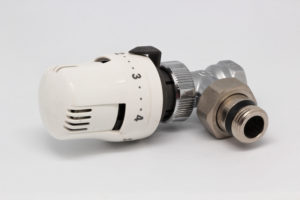 Thermostatic radiator valves (TRV) have been used for many years very successfully with traditional combustion-based boiler systems. They work by automatically closing the valve when the room is sufficiently warm. As the valve close over, the flow through the radiator is reduced. It’s really a very simple system but this simplicity comes at a cost. You see, as the valves close, it makes it harder for the pump to pump water around the system (a phenomenon which in technical circles is referred to as pressure loss across a valve).
Thermostatic radiator valves (TRV) have been used for many years very successfully with traditional combustion-based boiler systems. They work by automatically closing the valve when the room is sufficiently warm. As the valve close over, the flow through the radiator is reduced. It’s really a very simple system but this simplicity comes at a cost. You see, as the valves close, it makes it harder for the pump to pump water around the system (a phenomenon which in technical circles is referred to as pressure loss across a valve).
In heat pump systems, such pressure losses can have a significant impact on the overall energy efficiency of the system, so it is usually best to set TRV’s in the open position in order to minimise pressure losses. Better still, use a heat distribution method which has been designed from the beginning to be used in conjunction with a heat pump.
Will fitting a heat pump lower my heating costs?
 The answer to this question is, well, it depends. It’s tempting to think that heat pump systems have some magical formula that can save you money on your heating bills. However, a far more important consideration is whether your insulation is up to scratch. For example, in a draughty old house with poor insulation, it would be very difficult to heat the rooms properly without using a fairly hot heat source such as a traditional radiator. Getting traditional radiators up to their normal working temperature is not easily achieved using a heat pump. Even if it were possible, the energy efficiency would be terrible and you would probably end up paying more than if you used a combustion-based heating system.
The answer to this question is, well, it depends. It’s tempting to think that heat pump systems have some magical formula that can save you money on your heating bills. However, a far more important consideration is whether your insulation is up to scratch. For example, in a draughty old house with poor insulation, it would be very difficult to heat the rooms properly without using a fairly hot heat source such as a traditional radiator. Getting traditional radiators up to their normal working temperature is not easily achieved using a heat pump. Even if it were possible, the energy efficiency would be terrible and you would probably end up paying more than if you used a combustion-based heating system.
Can any plumber install my heat pump system?

It is normally better to go with a specialist installer of heat pumps because such firms will be familiar with the process and will likely be more efficient and get the job done more quickly and cheaply.
However, it is possible for any plumber to install a heat pump system because the skills required are very similar (actually almost identical) to those required to carry out standard plumbing work. It is not possible simply to install a heat pump in
The most obvious difference is that the pipe connections tend to be much larger diameter than some plumbers might be used to working with.
One important factor that you should bear in mind if you are hoping to qualify for RHI funding is that your system must be designed and fitted by an MCS accredited firm.
Are there any health concerns or environmental hazards associated with heat pumps?
 No. There is no combustion associated with a heat pump and therefore no emissions of gaseous combustion products, which can be a concern in gas-fired boilers. There will be no gas leaks to the air or oil leaks to the ground or water environment. There is no large gas tank or oil tank required on site and a heat pump has no emissions to the environment whatsoever. Heat pumps are therefore very safe and pose no risk to the environment.
No. There is no combustion associated with a heat pump and therefore no emissions of gaseous combustion products, which can be a concern in gas-fired boilers. There will be no gas leaks to the air or oil leaks to the ground or water environment. There is no large gas tank or oil tank required on site and a heat pump has no emissions to the environment whatsoever. Heat pumps are therefore very safe and pose no risk to the environment.
What is the best heat pump temperature setting?
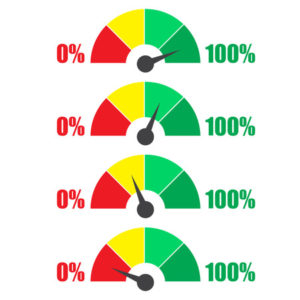 This is a question that gets asked a lot. The premise of the question assumes that one is able to control the heat pump operating temperature in a similar way to a standard combustion boiler. This is not the case because heat pumps are usually self-controlling and kick in when they are needed before turning themselves off-again when they have added sufficient heat to the rooms they service.
This is a question that gets asked a lot. The premise of the question assumes that one is able to control the heat pump operating temperature in a similar way to a standard combustion boiler. This is not the case because heat pumps are usually self-controlling and kick in when they are needed before turning themselves off-again when they have added sufficient heat to the rooms they service.
The main thing to bear in mind is that the larger the difference in temperature between the heat source and heat sink, the more efficient your heat pump system will be. What this means in practice for heat pumps is that the hotter the water has to be heated, the less efficient the heat pump will be.
I remember discussing a similar point with a friend of mine about a conventional heating system. She was telling me that she would run her heating non-stop during a very cold winter spell but the temperature of the radiators would be relatively low. She had heard this was more efficient than running the radiators hot for a relatively short period of time in the evening when the heat was required. Whilst this may be true in certain circumstances for traditional combustion-based systems, it is very often the case for heat pump systems that running them at lower temperatures for longer periods of time will yield much greater efficiency.
This helps to explain the popularity and effectiveness of underfloor heating when used in conjunction with heat pumps. Always remember though to ensure that your building is fully insulated before adopting this type of approach.
Is it possible to operate my heat pump underfloor heating with different zones at different temperatures?
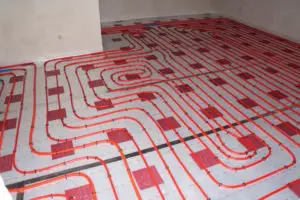 The simplest set up would be designed to heat most of the rooms all at the same time to a similar temperature. In theory, anything is possible in terms of zoning providing measures have been taken to isolate the air in each room appropriately. Opinions vary between different manufacturers when it comes to serving the self-regulation that takes place in an underfloor heating system means that it is possible to keep a lot of the zones open continuously. If you keep the heat pump set relatively low this can keep the system operating from longer which can be beneficial.
The simplest set up would be designed to heat most of the rooms all at the same time to a similar temperature. In theory, anything is possible in terms of zoning providing measures have been taken to isolate the air in each room appropriately. Opinions vary between different manufacturers when it comes to serving the self-regulation that takes place in an underfloor heating system means that it is possible to keep a lot of the zones open continuously. If you keep the heat pump set relatively low this can keep the system operating from longer which can be beneficial.
Can I use a heat pump in a domestic hot water system?
 The short answer is yes. However, it is important to bear in mind that the high temperatures demanded of a domestic hot water system will result in lower efficiency. Having said that, the efficiency will generally be much better than a conventional electric immersion heater. The optimisation of the hot water function on a domestic system is becoming increasingly important as these demands increase, which seems to be an identifiable trend. Indeed, many modern heat pump units come with the capability for hot water heating already built in, which means that the use of this function is positively encouraged, resulting in more and more systems being used for this application.
The short answer is yes. However, it is important to bear in mind that the high temperatures demanded of a domestic hot water system will result in lower efficiency. Having said that, the efficiency will generally be much better than a conventional electric immersion heater. The optimisation of the hot water function on a domestic system is becoming increasingly important as these demands increase, which seems to be an identifiable trend. Indeed, many modern heat pump units come with the capability for hot water heating already built in, which means that the use of this function is positively encouraged, resulting in more and more systems being used for this application.
Do I need a buffer tank – what is a buffer tank anyway and what does it do?
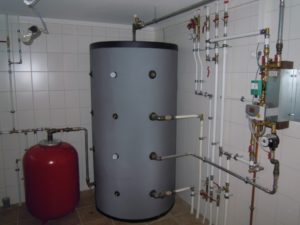 First things first, what does a buffer tank do? Well, the simplest explanation is that a buffer tank prevents the heat pump from cycling on and off too frequently. Cycling on and off too frequently reduces the efficiency of the heat pump system. A buffer tank holds a quantity of water, which increases the volume of water in the distribution system. During periods of low load, when not so much heat is required and the pump would otherwise simply turn off, the extra quantity of water in the tank absorbs the extra heat generated by the heat pump, which means it can continue to operate. This avoids cycling on and off and thereby improves efficiency.
First things first, what does a buffer tank do? Well, the simplest explanation is that a buffer tank prevents the heat pump from cycling on and off too frequently. Cycling on and off too frequently reduces the efficiency of the heat pump system. A buffer tank holds a quantity of water, which increases the volume of water in the distribution system. During periods of low load, when not so much heat is required and the pump would otherwise simply turn off, the extra quantity of water in the tank absorbs the extra heat generated by the heat pump, which means it can continue to operate. This avoids cycling on and off and thereby improves efficiency.
So, if the buffer tank improves the efficiency of my heating system, it sounds like I should get one doesn’t it? Are there any drawbacks? Well, one of the drawbacks, particularly in the UK where space is at a premium, is that a buffer tank takes up quite a lot of room. The size will vary according to the needs of the system, but many homeowners simply don’t want to give over the space to a big lump of metal.
In well insulated properties with an open plan design, the building itself can act as a buffer. Also, systems that contain a lot of water already, such as large radiators, may not require a buffer tank. It’s also worth mentioning that modulating heat pumps are available, which have variable output. This means that they do not need to turn off and on in the same way as a standard heat pump does (standard heat pumps operate at maximum output all the time and when there is sufficient heat they simply turn off).
So as always, it is important to get site-specific information about your heating system requirements and base any decision on whether or not fit a buffer tank on professional advice. Without a buffer tank you will save space, but you are likely to have poorer efficiency due to a greater number of cycles and less control over the temperature of your house, particularly if zoning is important to you.
How long will my heat pump last before it needs to be replaced?
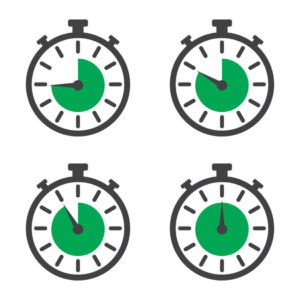 You would be surprised just how long a good quality, well fitted and maintained heat pump can last. Typically, water to water heat pumps can last for over 20 years, even without much in the way of maintenance. Compare this to around 15 years for a standard boiler and this seems pretty good.
You would be surprised just how long a good quality, well fitted and maintained heat pump can last. Typically, water to water heat pumps can last for over 20 years, even without much in the way of maintenance. Compare this to around 15 years for a standard boiler and this seems pretty good.
If you have an air source system, this will require a bit more maintenance due to the fact that they tend to be sited outdoors in the wind, rain and snow. This battering from the weather reduces their lifespan a little down to around the 15 year mark, which is on a par with a standard gas-fired boiler.
Heat pumps are very reliable and breakdowns are much less common than with traditional boilers. However, when they do stop working, the costs of repair can be quite significant.
Can I heat my swimming pool with a heat pump?
 Yes. It is possible to use either air source heat pumps or ground source heat pumps for heating a swimming pool. There are many good examples of successful implementations of this design and they can result in worthwhile financial savings.
Yes. It is possible to use either air source heat pumps or ground source heat pumps for heating a swimming pool. There are many good examples of successful implementations of this design and they can result in worthwhile financial savings.
How much does an air source heat pump cost?
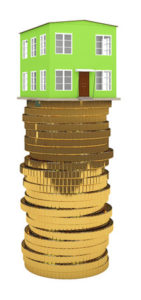
Cost very much depends on the size of pump you require, which in turn depends upon the size of your property and how much work heating system has to do to maintain a comfortable temperature within your building.
If you’re talking about heating a single room, £1000-£2000 is a realistic figure. For a typical three or four bedroomed house, you could be looking at a bill of around £10,000. Of course, these figures are just indicative and the precise costs will depend upon the factors mentioned above as well as whether you are selecting an air to air heat pump, which tends to be a little cheaper, or an air to water heat pump, which can also handle your hot water needs.
Typically, you could see savings in running costs when compared with fossil fuel heating of around 25 to 50%, which is obviously worth a closer look.
Are there financial incentives or grants available to help me pay for my heat pump installation?
 Yes. The government has put in place financial scheme called the renewable heat incentive (RHI), which many people have successfully used to help pay for a heat pump system. The Ofgem website has lots of useful information about this https://www.ofgem.gov.uk/environmental-programmes/domestic-renewable-heat-incentive.
Yes. The government has put in place financial scheme called the renewable heat incentive (RHI), which many people have successfully used to help pay for a heat pump system. The Ofgem website has lots of useful information about this https://www.ofgem.gov.uk/environmental-programmes/domestic-renewable-heat-incentive.
I want to go all-in on renewable technologies, can I run my heat pump directly from a wind turbine and/or solar panels?
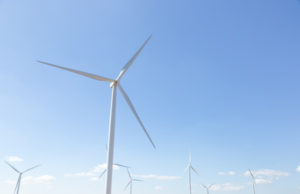 In theory, yes this is perfectly doable. Remember though, that you’ll want to heat your home while the sun isn’t shining and when there is no wind blowing… what then?
In theory, yes this is perfectly doable. Remember though, that you’ll want to heat your home while the sun isn’t shining and when there is no wind blowing… what then?
Average town house – vertical vs horizontal existing title
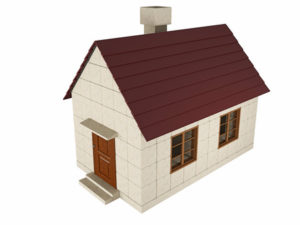 People who live in towns often ask whether they can install a heat pump. If they have a typical, pre- 1980s house then I would always suggest that they concentrate on upgrading their insulation before doing anything heat pump related. The benefits (both financial and environmental) of improved insulation will normally far exceed any benefits of installing a heat pump in these kinds of property.
People who live in towns often ask whether they can install a heat pump. If they have a typical, pre- 1980s house then I would always suggest that they concentrate on upgrading their insulation before doing anything heat pump related. The benefits (both financial and environmental) of improved insulation will normally far exceed any benefits of installing a heat pump in these kinds of property.
Assuming that the insulation is as good as it can be, the next stumbling block is often a lack of space. Houses in towns in the UK are normally packed quite close together, which means small gardens and little available space for large ground source heat pump installations. A borehole might be an option, but accommodating a drilling rig in a small garden is probably not reasonable simply for installing a heat pump – the cost and disruption would not represent a good trade-off.
Air source heat pumps are definitely an option that could be considered, but these need to be located carefully because they can be somewhat noisy, so you’d want them well away from any bedroom windows, for example. They also tend to not be as efficient as a ground source heat pump and will require planning permission. As always, it is best to seek professional advice on the site-specific requirements of your project before reaching a decision.
I have read that I must have 3-phase electricity, is this required?
 Basically, heat pumps require large electric motors that run most efficiently with a 3-phase electricity supply. Unfortunately, this is not common in the UK outside industrial sites.
Basically, heat pumps require large electric motors that run most efficiently with a 3-phase electricity supply. Unfortunately, this is not common in the UK outside industrial sites.
Don’t worry about this too much though because there are technical solutions available for larger systems, and in any case small heat pumps work just as well with a standard domestic electricity supply.
Is a heat pump guaranteed to save me money?
 No, sorry. The most effective way to save money on your heating bills in the longer term is by improving your insulation. Once you have done this, you can look into installing a heat pump. The benefits of heat pumps are best achieved in housed with very good insulation.
No, sorry. The most effective way to save money on your heating bills in the longer term is by improving your insulation. Once you have done this, you can look into installing a heat pump. The benefits of heat pumps are best achieved in housed with very good insulation.
Can heat pumps be used for cooling as well as heating?
 Yes. All a heat pump does is move heat from one location to another. During the winter, the heat must be brought into the building from outside, whereas during the summer, heat can be taken from inside the building and released outside. Some heat pumps have a “reverse” cycle that allows them to perform both of these tasks. A refrigerator is a type of heat pump and is a familiar piece of technology that clearly demonstrates the ability of a heat pump to cool a space.
Yes. All a heat pump does is move heat from one location to another. During the winter, the heat must be brought into the building from outside, whereas during the summer, heat can be taken from inside the building and released outside. Some heat pumps have a “reverse” cycle that allows them to perform both of these tasks. A refrigerator is a type of heat pump and is a familiar piece of technology that clearly demonstrates the ability of a heat pump to cool a space.
Can you help me to improve this list of frequently asked questions?
This web page is a living document that I am always looking to improve. If you can think of any heat pump FAQ that are missing from the above list, please let me know and I’ll add it to the next update.